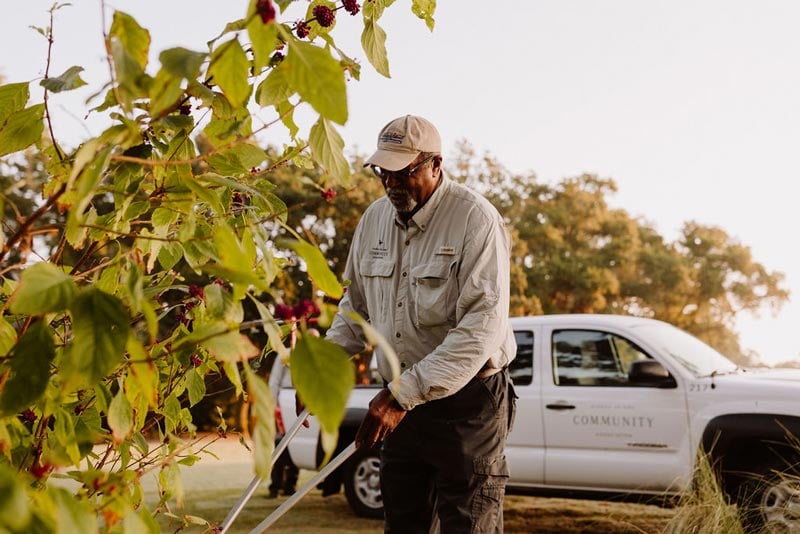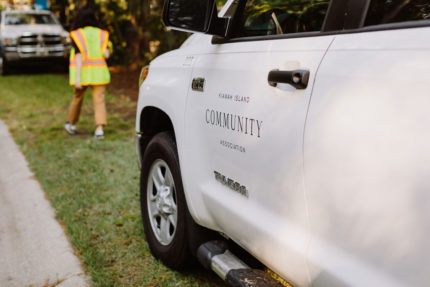Apr
06
2009
From The Blog
Group Confronts Wind/Hail Insurance Issues
In summer 2008, nine Seabrook Island property owners reacted to the skyrocketing cost of wind and hail insurance by creating the Wind and Hail Insurance Group (WHIG). They each had experienced homeowners’ insurance policy cancellations and sharply increased insurance premiums—largely attributable to insurance industry backlash from the recent Gulf Coast hurricanes Katrina and Rita, but the increased premiums were also partly attributable to the increases in property values. The committee formed “to see what we could do about it,” according to group chair and spokesperson Bill Mowat. One of its strategies is to involve other South Carolina coastal communities in its efforts; accordingly, Bill and several other WHIG members addressed a heavy turnout at the March 16 Mornings with Joe session.
The information provided below is a summary of the presentation and discussion at the meeting and follow-up conversations by Digest with Bill Mowat and WHIG member Roy Mathis, who is a member of the State Silver Haired Legislature. WHIG emphasizes that its members are only concerned citizens who have recently become well informed; none are hurricane insurance professionals.
SC Wind and Hail Underwriters Association – The “Pool”
In 1971, state legislation created a “last chance” mechanism to provide wind and hail insurance coverage for people who could not get that insurance from their own private insurance providers. The pool is not a government or government-regulated agency, and the state has no financial responsibility for it. Rather, the pool is an association of independent private insurance companies formed so that the members can share hurricane insurance risk. Companies in the pool say they do not need oversight because the pool is a private association. However, the individual companies are regulated outside of the pool, and WHIG seeks oversight within the pool as well.
In the last year or so, after the recent severe Gulf Coast hurricanes, many individual companies have ceased writing wind and hail insurance and either cancelled their clients’ policies or cancelled the wind and hail portion, instead shunting their clients into the pool at greatly inflated premium rates. The pool (www.scwind.com) readily admits that its price is typically higher than in the private market.
The size of the pool has grown steadily as companies increasingly refuse to renew policies. Today, about 200 companies comprise the pool, but nearly 50% of the pool’s business is concentrated in five companies that are also major providers of other components of homeowners’ insurance: State Farm, Allstate, Nationwide, Travelers and USAA. It is governed by a board of directors that includes 11 insurance company representatives, two coastal insurance agents and four customer members.
Many Kiawah homes are ineligible for coverage in the pool. The pool will not write coverage for any residence (land value excluded) that exceeds $1.3 million. Homes that exceed this cap have to look elsewhere for coverage from one of the increasingly limited number of companies that will still provide full direct coverage.
The chart below shows Kiawah pool activity over the last three years. The number of Kiawah policies in the pool increased by 37% between 2006 and 2007. Kiawah has approximately 4,000 dwellings, many of which are managed by regimes. While in some regimes, individuals must secure their own insurance, other regimes purchase homeowners insurance for the regime. Therefore, the numbers of policies shown below represent more than 25% of Kiawah residences.
Agent Commissions: Premiums have risen by as much as 60% over the past four years and agents’ commissions have held steady at 10% of the premium amount, meaning a windfall for agents. Commissions should not be a ratio of premiums.
Tax revenues: South Carolina charges a 3.3% tax on insurance premiums, and 2.0% of this comes back to the general fund of the town from which it is collected. WHIG suggested that the fee
should be dedicated to storm clean-up and repairs. However, Town of Kiawah Island officials report that this fee is collected through the Municipal Association of SC’s Broker’s Collection Tax program, and is “a component of the Business License Program. All business license revenue is deposited into the town’s general fund and are used for the general operations of the town.” The town budgets for disaster recovery via the local Accommodations Tax Fund.
Compensation for improvements: Tax credits and premium reductions for making home improvements to lessen the likelihood of storm damage are too low and rarely begin to approach the cost
of the improvements or even the cost of the certification process to document the improvements. Anecdotal reductions include a 1% reduction on an $8,000 premium and a $1,000 tax credit on a
$20,000 improvement.
Private Insurance
Premium increases and rising property values have driven many Kiawah homeowners to seek “private” insurance outside of the pool. The SC Department of Insurance claims to be stimulating competition in the marketplace, and said last year that about 13 companies would write such insurance. However, one WHIG member called all those companies, and only one would give him insurance.
A few companies are writing private insurance. One company is PURE (www.purehnw.com), now in its second year of operation. It has high underwriting standards: homes must exceed $1 million in value, have been built in the last eight or nine years, and meet all current hurricane construction standards. Lloyds of London and Fireman’s Fund are among other companies that meeting attendees said will write private wind and hail insurance.
The Importance of Geography
In 2007, an omnibus state insurance bill expanded the “coastal area,” moving the boundary for which properties can be placed in the pool further inland. The new area now extends to Bohicket Road and Plowground, and includes James Island and areas east of Route 17, such as Mt. Pleasant. But the Charleston peninsula and Daniel Island are excluded from the boundaries. These are clearly also coastal communities, and the new boundaries appear to be arbitrary. Charleston County is assessed the highest premiums in South Carolina. Rates in Hilton Head (in Beaufort County) are 20% lower than on Kiawah (Charleston County).
North Carolina does not set different rates for coastal areas, but spreads its risk across the state. The larger the population in the risk pool, the lower the cost for everyone. The philosophy in NC seems to be that the whole state benefits from tourism and high real estate prices on the coast, therefore everyone should share the insurance burden; whereas SC seems to believe that people who live on the coast should bear the burden of choosing to do so.
What Can Be Done
WHIG seeks to influence the South Carolina State Legislature and the Department of Insurance to ensure transparency in how decisions about insurance rates and coverage are made, establish oversight, assure a non-discriminatory approach and improve the quality of the insurance product. Silver Haired Legislator Roy Mathis is makinginroads in Columbia and WHIG is developing a relationship with Glenn McConnell, president pro tem of the SC state senate. WHIG has weekly contact with him and will meet with him when an audit of the pool is completed.
Each coastal state has its own wind and hail pool, but some states use measures that are better for consumers than those in South Carolina. WHIG wants the pool to look at what other states are doing and adopt practices that would benefit its clients. WHIG is also seeking an annual audit of the pool; the insurance companies are already required to undergo annual audits and the pool should as well.
Finally, WHIG aims to communicate its findings to other coastal communities and create a coalition to support its mission, and is reaching out to Kiawah, Mt. Pleasant, Edisto, Hilton Head, Myrtle Beach and the Charleston Trident Realty Association—the latter because high premiums are beginning to adversely affect home sales. Interested members can contact Bill Mowat at [email protected] or Roy Mathis at [email protected] to offer to help.

